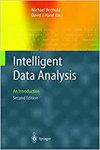ACEANet: Ambiguous Context Enhanced Attention Network for skin lesion segmentation
IF 0.8
4区 计算机科学
Q4 COMPUTER SCIENCE, ARTIFICIAL INTELLIGENCE
引用次数: 0
Abstract
Skin lesion segmentation from dermatoscopic images is essential for the diagnosis of skin cancer. However, it is still a challenging task due to the ambiguity of the skin lesions, the irregular shape of the lesions and the presence of various interfering factors. In this paper, we propose a novel Ambiguous Context Enhanced Attention Network (ACEANet) based on the classical encoder-decoder architecture, which is able to accurately and reliably segment a variety of lesions with efficiency. Specifically, a novel Ambiguous Context Enhanced Attention module is embedded in the skip connection to augment the ambiguous boundary information. A Dilated Gated Fusion block is employed in the end of the encoding phase, which effectively reduces the loss of spatial location information due to continuous downsampling. In addition, we propose a novel Cascading Global Context Attention to fuse feature information generated by the encoder with features generated by the decoder of the corresponding layer. In order to verify the effectiveness and advantages of the proposed network, we have performed comparative experiments on ISIC2018 dataset and PH2 dataset. Experiments results demonstrate that the proposed model has superior segmentation performance for skin lesions.基于模糊上下文增强的关注网络的皮肤病变分割
从皮肤镜图像中分割皮肤病变对皮肤癌的诊断至关重要。然而,由于皮肤病变的模糊性、病变形状的不规则性以及各种干扰因素的存在,这仍然是一项具有挑战性的任务。本文基于经典的编码器-解码器结构,提出了一种新的模糊上下文增强注意网络(ACEANet),该网络能够准确、可靠、高效地分割各种病灶。具体而言,在跳过连接中嵌入了一种新的模糊上下文增强注意模块,以增强模糊边界信息。在编码后期采用扩张型门控融合块,有效减少了连续下采样导致的空间位置信息丢失。此外,我们提出了一种新的级联全局上下文关注,将编码器生成的特征信息与相应层解码器生成的特征融合在一起。为了验证所提出网络的有效性和优势,我们在ISIC2018数据集和PH2数据集上进行了对比实验。实验结果表明,该模型对皮肤损伤具有良好的分割性能。
本文章由计算机程序翻译,如有差异,请以英文原文为准。
求助全文
约1分钟内获得全文
求助全文
来源期刊

Intelligent Data Analysis
工程技术-计算机:人工智能
CiteScore
2.20
自引率
5.90%
发文量
85
审稿时长
3.3 months
期刊介绍:
Intelligent Data Analysis provides a forum for the examination of issues related to the research and applications of Artificial Intelligence techniques in data analysis across a variety of disciplines. These techniques include (but are not limited to): all areas of data visualization, data pre-processing (fusion, editing, transformation, filtering, sampling), data engineering, database mining techniques, tools and applications, use of domain knowledge in data analysis, big data applications, evolutionary algorithms, machine learning, neural nets, fuzzy logic, statistical pattern recognition, knowledge filtering, and post-processing. In particular, papers are preferred that discuss development of new AI related data analysis architectures, methodologies, and techniques and their applications to various domains.
 求助内容:
求助内容: 应助结果提醒方式:
应助结果提醒方式:


